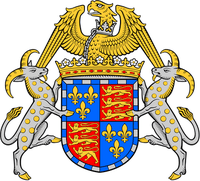List of alumni of St John's College, Cambridge

The following is a list of notable people educated at St John's College, Cambridge. When available, years of attendance are provided as indicated in the College Register or in the Oxford Dictionary of National Biography. Over 1000 former members of St John's College appear in the Oxford Dictionary of National Biography.[1]
Politics, Military, and the Civil Service
- John Cheke, Secretary of State, 1553
- Roger Ascham, tutor of Elizabeth I and advisor to Edward VI and Mary I
- William Cecil, 1st Baron Burghley, Lord High Treasurer, 1572–98, and chief advisor to Elizabeth I
- Thomas Sackville, 1st Earl of Dorset, Lord High Treasurer, 1599–1608
- Robert Cecil, 1st Earl of Salisbury, Lord High Treasurer, 1608–12, Secretary of State, 1590-12
- Thomas Howard, 1st Earl of Suffolk, Lord High Treasurer, 1614–18
- Thomas Wentworth, 1st Earl of Strafford, leading advisor to Charles I, Lord Lieutenant of Ireland, 1633–41
- Lucius Cary, 2nd Viscount Falkland, Secretary of State, 1642–43
- Thomas Wriothesley, 4th Earl of Southampton, Lord High Treasurer, 1660–67
- John Duncombe, Chancellor of the Exchequer, 1672–76
- Henry Howard, 6th Duke of Norfolk, Earl Marshal, 1672–84
- Francis North, 1st Baron Guilford, Lord Keeper, 1682–85
- Edward Villiers, 1st Earl of Jersey, Secretary of State 1699–1700 (South)
- James Vernon, Secretary of State 1697–1700 (North) and 1700-2 (South)
- John Aislabie, Chancellor of the Exchequer, 1718–21
- Thomas Thynne, 1st Marquess of Bath, Secretary of State, 1768–70 & 1775–79 (South), 1768 & 1779 (North)
- Fletcher Norton, 1st Baron Grantley, Speaker of the House of Commons, 1770–80
- Thomas Clarkson, abolitionist and a leading campaigner against the slave trade in the British Empire
- Charles Philip Yorke, Home Secretary, 1803–04, First Lord of the Admiralty, 1810–12
- Dudley Ryder, 1st Earl of Harrowby, Secretary of State for Foreign Affairs, 1804-5
- Richard Ryder, Home Secretary, 1809–12
- William Wilberforce, Member of Parliament and a leader of the movement to abolish the slave trade
- Robert Stewart, Viscount Castlereagh, Secretary of State for Foreign Affairs, 1812–22
- Hugh Percy, 3rd Duke of Northumberland, Lord Lieutenant of Ireland, 1829–30, Chancellor of the University of Cambridge 1840–47
- Gilbert Elliot-Murray-Kynynmound, 2nd Earl of Minto, Lord Privy Seal, 1846–52, First Lord of the Admiralty, 1835–1841
- Thomas de Grey, 2nd Earl de Grey, Lord Lieutenant of Ireland, 1841–44
- Walter Montagu Douglas Scott, 5th Duke of Buccleuch, Lord Privy Seal, 1842–46
- George Villiers, 4th Earl of Clarendon, Secretary of State for Foreign Affairs, 1853–58, 1865–66, 1868–70
- Sir William Molesworth, 8th Baronet, Secretary of State for the Colonies, 1855
- Suematsu Kenchō, Japanese Minister of Home Affairs, 1900–01
- Sir James Allen, Finance Minister of New Zealand, 1912–15
- Yoshirō Fujimura, Japanese Minister of Communications, 1924, Director of Mitsui & Co.
- Nawab Mohammad Ismail Khan, President of the All-India Muslim League, 1930–47
- Sir Percy James Grigg, Secretary of State for War, 1942–45
- Sir Henry Lee Hau Shik, first Finance Minister of Malaysia, 1957–59
- Akhter Husain, Governor of West Pakistan, 1957–60
- Sir Percy Cradock, British Ambassador to the People's Republic of China, 1978–83
- Sir Bryan Cartledge, British Ambassador to the USSR, 1985–88
- Sir Robin McLaren, British Ambassador to the People's Republic of China, 1991–94
- Fra' Matthew Festing, Prince and Grand Master of the Sovereign Military Order of Malta, 2008–
Prime Ministers
- Charles Watson-Wentworth, 2nd Marquess of Rockingham (briefly admitted), Prime Minister of the United Kingdom, 1765–66 & 1782[2]
- F. J. Robinson, 1st Viscount Goderich, Prime Minister of the United Kingdom, 1827–28
- George Hamilton-Gordon, 4th Earl of Aberdeen, Prime Minister of the United Kingdom, 1852–55
- Henry John Temple, 3rd Viscount Palmerston, Prime Minister of the United Kingdom, 1855–58 & 1859–65
- Alfred Domett, Prime Minister of New Zealand, 1862–63
- Sir Francis Bell, Prime Minister of New Zealand, 1925
- Manmohan Singh, Prime Minister of India, 2004–2014
Military and Colonial Administrators
- Thomas Fairfax, 3rd Lord Fairfax of Cameron, parliamentary general and commander-in-chief in the English Civil War
- William Cavendish, 1st Duke of Newcastle, general and major supporter of Charles I in the English Civil War
- Algernon Percy, 10th Earl of Northumberland, Admiral of the Fleet, Lord High Admiral, 1638–43
- Edward Russell, 1st Earl of Orford, Admiral of the Fleet, First Lord of the Admiralty, 1694–99, 1709–10, and 1714–17
- George Townshend, 1st Marquess Townshend, Field Marshal, Lord Lieutenant of Ireland, 1767–72
- Richard Penn, Lieutenant Governor of Pennsylvania, 1771–73
- Hugh Percy, 2nd Duke of Northumberland, Lieutenant-General during the American Revolutionary War
- John Cradock, 1st Baron Howden, General, Governor of the Cape Colony, 1811–14
- Edward Law, 1st Earl of Ellenborough, Governor-General of India, 1842–44
- Algernon Percy, 4th Duke of Northumberland, Admiral, First Lord of the Admiralty, 1852
- Hugh Rose, 1st Baron Strathnairn, Field Marshal
- Sir Denzil Ibbetson, Lieutenant Governor of Punjab, 1907–08
- Thomas Gibson-Carmichael, 1st Baron Carmichael, Governor of Victoria, 1908–11
- Sir Harry Edward Spiller Cordeaux, Governor of Saint Helena, 1912–20, and Governor of Uganda, 1910–11
- Sir James Peiris, first native Governor of Ceylon (Acting), 1929
- Sir Thomas Snow, Lieutenant-General during WWI
- Sir Fraser Russell, Governor of Southern Rhodesia, 1934–35, 1942, and 1946
- Hugh Foot, Baron Caradon, Governor of Cyprus, 1957–60, and Governor of Jamaica, 1951–57
- Sir Roger Palin, Air Chief Marshal
- Sir Andrew Ridgway, Lieutenant-General, Lieutenant Governor of Jersey, 2006–11
Current Members of Parliament
- Nigel Dodds, Deputy leader of the Democratic Unionist Party
- Ben Gummer
- Robert Jenrick
- Richard Burgon
Current Members of the House of Lords
- Peter Hennessy
- David Rowe-Beddoe
- David Hope
- Mervyn King
- John Browne
- Larry Whitty
- Colin Renfrew
- Robert Mair (fellow)
Justice
- Edmund Anderson, Chief Justice of the Common Pleas, 1583–1605
- Robert Heath, Lord Chief Justice of England, 1642–45
- Humphrey Winch, Lord Chief Justice of Ireland, 1608–11
- Robert Booth, Lord Chief Justice of Ireland, 1679–80
- Sir Codrington Edmund Carrington, 1st Chief Justice of Ceylon, 1801–06
- Thomas Denman, 1st Baron Denman, Lord Chief Justice of England, 1832–50
- William Martin, Chief Justice of New Zealand, 1841–57
- Edward Marshall Hall, Victorian era barrister known as "The Great Defender"
- Wee Chong Jin, Chief Justice of Singapore, 1963–90
- Ahmad Mohamed Ibrahim, Attorney-General of Singapore, 1965–67
- Maharaj Nagendra Singh, President of the International Court of Justice, 1985–88
- Walter Woon, Attorney-General of Singapore, 2008–10
- Asaf Ali Asghar Fyzee, (1899–1981), advocate in Bombay High Court, 1st Indian ambassador to Egypt, Vice-Chancellor of University of Jammu and Kashmir
- Glanville Williams, Q.C. LL.D. F.B.A. described in 1997 by the New York Times as the greatest lawyer of the 20th century
- Stanley Berwin, one of the leading lawyers of the second half of the 20th century
Science, mathematics, and technology
- Chris Abel, Professor of Biological Chemistry at Cambridge
- John Couch Adams, mathematician and discoverer of Neptune
- Bernard Armitage, fellow of the College and psychiatrist
- George Barnard, statistician known for his work on the foundations of statistics
- Sir David Cox, prominent statistician
- Steve Furber, computer scientist
- Sir Samuel Curran, physicist, inventor of the scintillation counter and proportional counter, and founder of Strathclyde University
- John Dee, mathematician, astronomer, astrologer, geographer, and consultant to Queen Elizabeth I
- Richard A. Proctor, astronomer
- Fearon Fallows, astronomer
- Thomas Fink, physicist and author
- William Gilbert, physician and natural philosopher, discoverer of the Earth's magnetic field and inventor of the word 'electricity'
- Johannes de Villiers Graaff, economist
- William Gregor, discoverer of titanium
- William D. Hamilton, evolutionary biologist who formalised the concept of kin selection
- David Harvey, Marxist geographer, social scientist
- William Heberden, British physician, gave the first clinical description (1768) of angina pectoris and demonstrated that chicken pox was different from smallpox
- John Herschel, prominent mathematician and astronomer who coined the word "photography"
- W. E. Hick, pioneer of cognitive science and discoverer of Hick's law
- Robert Hinde, Professor of Zoology, and former Master of St. John's
- Sir Fred Hoyle, pioneering but controversial cosmologist who first used the term 'Big Bang'
- James Jago, scientist and physician
- Sir Harold Jeffreys, applied mathematician and geophysicist
- Joseph Larmor, mathematician and physicist
- Louis Leakey, archaeologist and naturalist credited with the discovery of Homo habilis
- John Marrack, immunologist
- Alfred Marshall, economist
- Sir Charles Algernon Parsons, inventor of the steam turbine
- Sir Roger Penrose, mathematical physicist and philosopher
- Cedric Price, architect
- Rudolf Peierls, physicist
- Eric Denton, marine biologist
- Vikram Sarabhai, father of the Indian space programme
- David Stoddart OBE, biogeographer
- Louis J. Mordell, mathematician
- James Joseph Sylvester, mathematician
- Brook Taylor, mathematician
- Henry Briggs, mathematician
- Sir Maurice Wilkes, one of the founding fathers of modern computer science, and inventor of the first stored program digital computer
- John Tuzo Wilson, geophysicist and geologist who achieved worldwide acclaim for his contributions to the theory of plate tectonics
Nobel Prize winners
- Sir Edward Appleton, winner of the Nobel prize for Physics, for discovering the Appleton layer
- Sir John Cockcroft KCB, Nobel prize-winning physicist who first split the atom
- Allan Cormack, Nobel laureate in Medicine or Physiology for the invention of the CAT scan
- Paul Dirac, Nobel laureate in Physics and one of the founders of Quantum Mechanics
- Sir Nevill Francis Mott, awarded Nobel prize for Physics for work on the behaviour of electrons in magnetic solids
- Abdus Salam, Nobel laureate in Physics, for unifying the electromagnetic force and the weak force
- Frederick Sanger, molecular biologist and one of only four double Nobel Prize winners
- Maurice Wilkins, awarded Nobel prize for Medicine or Physiology with Watson and Crick for discovering the structure of DNA
-
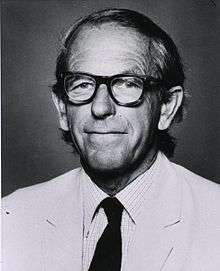
Frederick Sanger, the fourth person to win two Nobel Prizes
Royal Medal Winners
Three Royal Medals, known also as the Queen's Medals, are awarded annually by the Sovereign upon the recommendation of the Council of the Royal Society, “two for the most important contributions to the advancement of Natural Knowledge (one in the physical and one in the biological sciences) and the other for distinguished contributions in the applied sciences”. The first Royal Medal was awarded in 1826 and previous recipients include thirty-eight Johnians.
| Name | Year | Rationale[3][4][5][6][7] |
|---|---|---|
| John Herschel | 1836 | For his paper on nebulae and clusters of stars, published in the Philosophical Transactions for 1833 |
| James Sylvester | 1861 | For his various memoirs and researches in mathematical science |
| John Newport Langley | 1892 | For his work on secreting glands, and on the nervous system |
| Charles Pritchard | 1892 | For his work on photometry and stellar parallax |
| Arthur Schuster | 1893 | For his spectroscopic inquiries, and his researches on disruptive discharge through gases and on terrestrial magnetism |
| Percy MacMahon | 1900 | For the number and range of his contributions to mathematical science |
| William Burnside | 1904 | For his researches in mathematics, particularly in the theory of groups |
| Augustus Love | 1909 | On the ground of his researches in the theory of elasticity and cognate subjects |
| William Mitchinson Hicks | 1912 | On the ground of his researches in mathematical physics |
| Grafton Elliot Smith | 1912 | No citation. |
| William Johnson Sollas | 1914 | For researches in palaeontology |
| Joseph Larmor | 1915 | On the ground of his numerous and important contributions to mathematical and physical science |
| William Rivers | 1915 | On the ground of his important contributions to ethnography and ethnology |
| William Bateson | 1920 | On the ground of his contributions to biological science, and especially his studies in genetics |
| Frederick Blackman | 1921 | For his researches on the gaseous exchange in plants & on the operation of limiting factors |
| Albert Seward | 1925 | For his researches on the palaeobotany of Gondwanaland |
| John Edward Marr | 1930 | For his pioneer work in the accurate zoning of the palaeozoic rocks |
| Patrick Laidlaw | 1933 | For his work on diseases due to viruses, including that on the cause and prevention of distemper in dogs. |
| Alfred Harker | 1935 | In recognition of his distinguished work and influence as a petrologist |
| Paul Dirac | 1939 | For the leading part he had taken in the development of the new quantum mechanics |
| William Topley | 1942 | For his outstanding work on experimental epidemiology and immunology |
| Harold Jeffreys | 1948 | For his distinguished work in geophysics and his important contributions to the astronomy of the solar system |
| Edward Appleton | 1950 | For his work on the ele [sic] transmission of electromagnetic waves round the earth and for his investigations of the ionic state of the upper atmosphere |
| Frederic Bartlett | 1952 | In recognition of his creation of an experimental school of psychology which has established under his leadership an outstanding position recognised internationally as without superior |
| Nevill Mott | 1953 | In recognition of his eminent work in the field of quantum theory and particularly in the theory of metals |
| John Cockcroft | 1954 | In recognition of his distinguished work on nuclear and atomic physics |
| W. V. D. Hodge | 1957 | In recognition of his distinguished work on algebraic geometry |
| Rudolf Peierls | 1959 | In recognition of his distinguished work on the theoretical foundations of high energy and nuclear physics |
| Raymond Lyttleton | 1965 | In recognition of his distinguished contributions to astronomy, particularly for his work on the dynamical stability of galaxies |
| Frank Yates | 1966 | In recognition of his profound and far-reaching contributions to the statistical methods of experimental biology |
| Joseph Hutchinson | 1967 | In recognition of his distinguished work on the genetics and evolution of crop-plants with particular reference to cotton |
| Charles Oatley | 1969 | In recognition of his distinguished work in the wartime development of radar and latterly for the design and development of a highly successful scanning electron microscope |
| Frederick Sanger | 1969 | In recognition of his pioneer work on the sequence of amino acids in proteins and of nucleotides of ribonucleic acids |
| Fred Hoyle | 1974 | In recognition of his distinguished contributions to theoretical physics and cosmology |
| Abdus Salam | 1978 | In recognition of his outstanding contributions to the physics of elementary particles with special reference to the unification of the electromagnetic and weak interactions |
| Roger Penrose | 1985 | For his fundamental contributions to the theory of gravitational collapse and to other geometric aspects of theoretical physics |
| Eric Denton | 1987 | In recognition of his outstanding contributions to the physiology of marine animals, to marine biology generally, and his leadership of UK marine science |
| Robert Hinde | 1996 | In recognition of his contributions to the field of animal behaviour and the dominant influence it achieved on the emerging field of ethology |
| Christopher Dobson | 2009 | For his outstanding contributions to the understanding of the mechanisms of protein folding and mis-folding, and the implications for disease |
Arts and literature
- Henry Wriothesley, 3rd Earl of Southampton, patron of William Shakespeare
- Douglas Adams, author
- John Gardner, author
- John Andrews, crime and antiques writer
- Sir Cecil Beaton, renowned photographer, Academy Award winner, and one of the Bright Young Things
- Patrick Brontë, father of the Brontë sisters
- Samuel Butler, author
- Louis Cha, Chinese novelist and newspaper editor
- Jennifer Egan, author, winner of 2011 Pulitzer Prize for fiction
- Colin Gardner, film and media studies theorist, professor at the University of California, Santa Barbara
- Robert Greene, arguably the first professional English author of plays, poems and novels
- Thomas Nashe, pamphleteer, satirist and playwright
- Frederic Raphael, screenwriter, novelist and journalist
- Tom Rob Smith, award nominee author of Soviet-era novels; erstwhile writer for Channel 5's defunct soap opera Family Affairs
- Paul Sussman, author, archaeologist and journalist
- Andrew Gilligan, controversial journalist
- Frederic Raphael, received Academy Award for Best Original Screenplay, 1965
- Robert Stevenson, nominated for Academy Award for Best Director, 1964
- Sir Hugh Casson, president of the Royal Academy of Arts, 1974–84
Poets
- Edward de Vere, 17th Earl of Oxford, courtier and poet, subject of the Oxfordian theory of Shakespeare authorship
- Thomas Wyatt, courtier and poet
- John Hall, poet
- Edward Benlowes, poet
- William Mason, poet
- Sir Brooke Boothby, 6th Baronet, poet
- Erasmus Darwin, poet and abolitionist
- Robert Herrick, author of renowned poem "To the Virgins, to Make Much of Time"
- William Wordsworth, major English Romantic poet and Poet Laureate of the United Kingdom, 1843–50
- William Barnes, poet
- T. E. Hulme, poet
- Richard Eberhart, poet, winner of 1966 Pulitzer Prize for poetry, United States Poet Laureate, 1969-61
Musicians
- William Sterndale Bennett, 19th-century composer
- Andrew Carwood, Director of Music St Paul's Cathedral (2007), tenor and conductor
- Andrew Gant, chorister and composer
- George Guest, Welsh choral conductor, college organist 1951–91
- Herbert Howells, English composer, college organist
- Geoffrey Paterson, conductor, college organist
- John Scott, LVO, English organist, organ scholar 1974–78, organist of St Paul's 1990–2004
- Harry Gregson-Williams, film score composer and Golden Globe nominee
- Rupert Gregson-Williams, film score composer and recipient of the European Film composer award
Religion
- Titus Oates, chaplain who fabricated the "Popish Plot"
- Thomas Gilbank Ackland, clergyman and domestic chaplain to the Duke of York
- Haslefoot Bridges, Puritan minister
- William Cassels, missionary and member of the Cambridge Seven
- D'Ewes Coke, clergyman and colliery master
- Edmund Hickeringill, churchman
- William Higton, clergyman and philanthropist
- William Jowett, missionary
- Henry Martyn, missionary to India and Persia
- William Morgan, Bishop of Llandaff and Bishop of St Asaph and Welsh Bible translator
- Edmund Prys, Welsh Bible translator and clergyman
- Edward Stillingfleet, British theologian and scholar
- John Thomlinson, clergyman and diarist
- Richard Vaughan, Bishop of Bangor 1595–97, Bishop of Chester 1597–1604, Bishop of London 1604–07
- John Colenso, Bishop of Natal, 1853–83
- Thomas Cooper Makinson, Missionary, seceded to the Church of Rome, 1809–1893
Roman Catholic cardinals, saints and martyrs
- Saint Richard Gwyn, martyr
- Saint Philip Howard, 20th Earl of Arundel, martyr
- Saint John Fisher (Fellow and Founder), martyr and cardinal
- Philip Howard, cardinal
- William Howard, 1st Viscount Stafford, martyr
Anglican archbishops
- Edwin Sandys, Archbishop of York, 1577–88
- John Williams, Archbishop of York, 1641–50, Lord Keeper of the Great Seal, 1621–25
- Richard Neile, Archbishop of York, 1631–40
- Donald Coggan, Archbishop of Canterbury, 1974–1980
- Richard Boyle, Archbishop of Tuam, 1638–45
- John Cradock, Archbishop of Dublin, 1772–78
- William Stuart, Archbishop of Armagh, 1800–22
- George Selwyn, Primate and 1st bishop of New Zealand, 1841–67
- Lowther Clarke, Archbishop of Melbourne, 1905–20
- Harrington Lees, Archbishop of Melbourne, 1921–29
- Gerald Sharp, Archbishop of Brisbane, 1921–33
- Peter Carnley, Primate of Australia 2000–05, Archbishop of Perth 1981–2005
Academics
- Frank Horton, Vice-Chancellor of the University of London 1939–45
- Andrew D. Hamilton, Vice-Chancellor of the University of Oxford, 2009–15, President of New York University, 2016–
- William Richard Hamilton, President of the Royal Geographical Society
- Sir James Wordie, President of the Royal Geographical Society
- Sir Vivian Fuchs, President of the Royal Geographical Society
- Sir Humphry Davy Rolleston, 1st Baronet, President of the Royal Society of Medicine, 1918–20
- Owen Chadwick, church historian, Vice-Chancellor of the University of Cambridge, 1969–71
- Richard Cockburn Maclaurin, President of the Massachusetts Institute of Technology, 1909–20
- Livingston Farrand, President of Cornell University, 1921–37
- Kikuchi Dairoku, Japanese Minister of Education, 1901-3, President of Tokyo University, 1898-01, and Kyoto University, 1908–12
- Sir Thomas Watson, 1st Baronet, President of the Royal College of Physicians, 1862–66
- Max Rosenheim, President of the Royal College of Physicians, 1966–71
- Charles Sydney Gibbes, English tutor of Tsarevich Alexei Nikolaevich of Russia
- Peter Hennessy, English historian of government
- Sir Harry Hinsley, historian and World War II codebreaker
- Edward Latymer, founder of Latymer Upper School and The Latymer School
- Sir Donald MacAlister, physician and chancellor of the University of Glasgow
- Tshilidzi Marwala, academic and businessman
- Sir Peter Noble, Principal of King's College London 1952–1968
- E. J. Rapson, numismatist and professor of Sanskrit (1906–36) at the University of Cambridge
- John Stevens Henslow English clergyman, botanist and geologist
- Thomas Sutton, founder of Charterhouse School and one of 16th-century England's wealthiest individuals
- Stephen Sykes, theologian, former Dean of St John's and Bishop of Ely, and principal of St John's College, Durham
- Frank Thistlethwaite, Vice-Chancellor of the University of East Anglia (1961–1980)
- Gregory Bateson, anthropologist
- David Denison, professor of linguistics
Sports and entertainment
- Sir John Clements, actor and theatrical producer
- Sir Derek Jacobi, actor
- Christopher Born, actor
- Jamie Bamber, actor
- Hugh Dennis, actor, comedian
- Paul Dempsey, TV presenter
- Jonathan Miller, physician, theatre and opera director, television presenter
- Sid Waddell, darts commentator
- Rob Andrew, England rugby footballer
- Chris Brasher, Olympic gold medallist runner, founder of the London Marathon
- Mike Brearley, cricketer, England Captain
- Logie Bruce Lockhart, Scotland rugby footballer
Miscellaneous
- Prince Adolphus, Duke of Cambridge (Honorary Degree)
- Sir Mark Moody-Stuart, chairman of Royal Dutch Shell, 1998–2001
- John Browne, Baron Browne of Madingley, CEO of BP, 1995–2007
- Damon Buffini, former head of private equity firm Permira
- Mark Coombs, billionaire and CEO of Ashmore Group[8]
- Kenneth Thomson, 2nd Baron Thomson of Fleet, ninth richest man in the world upon his death in 2006
- Dame Louise Makin, CEO of BTG plc, 2004–present
- Sir Harpal Kumar, CEO of Cancer Research UK
- Prince William, Duke of Cambridge (Affiliated)
References
- ↑ http://www.oxforddnb.com/search/quick/?quicksearch=quicksearch&docPos=1&searchTarget=fulltext&simpleName=St+John's+College,+Cambridge&imageField.x=13&imageField.y=4&imageField=Go
- ↑ Thomson, George Malcolm. The prime ministers, from Robert Walpole to Margaret Thatcher. Morrow, 1981 p. 34.
- ↑ "The Royal Medals (recent)". The Royal Society. Retrieved 26 November 2008.
- ↑ "Royal Medal Winners: 2007 – 1990". The Royal Society. Retrieved 26 November 2008.
- ↑ "Royal Medal Winners:1990 – 1950". The Royal Society. Retrieved 30 November 2008.
- ↑ "Royal Medal Winners:1949 – 1900". The Royal Society. Retrieved 1 December 2008.
- ↑ "Royal archive winners before 1900". The Royal Society. Retrieved 6 December 2008.
- ↑ Burgess, Kate (27 February 2007). "Ashmore's reluctant debutante". FT. Retrieved 31 December 2014.
.jpg)
_by_Robert_Walker_and_studio.jpg)

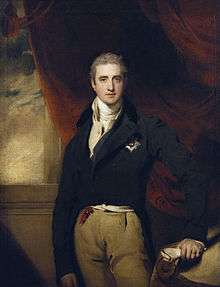

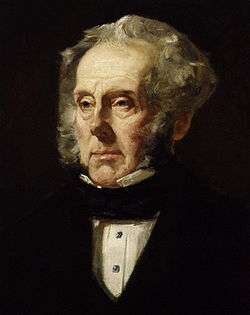
.jpg)
.jpg)
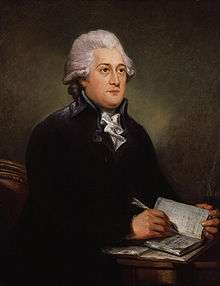
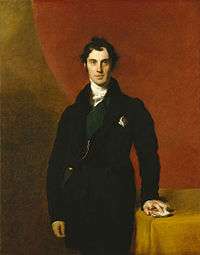

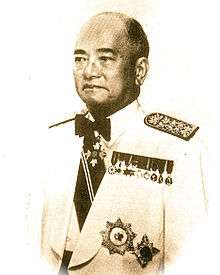

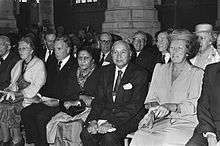


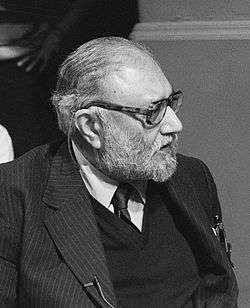

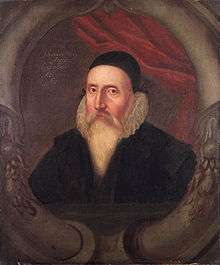






_by_Hans_Holbein_the_Younger.jpg)
_cropped.png)





.jpg)



%2C_by_Mason_%26_Co..jpg)





